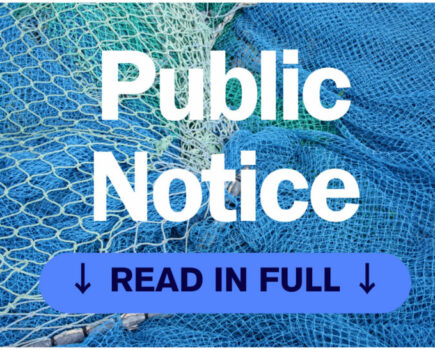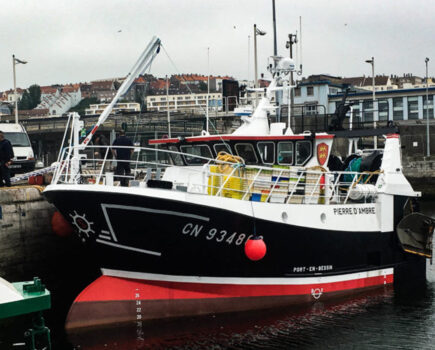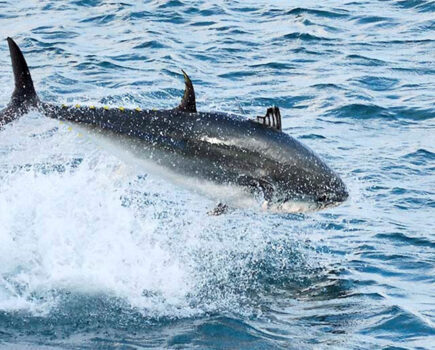Fisheries minister Victoria Prentis has stressed the need to work with the fishing industry when deciding on restrictions on bottom trawling in MPAs, reports Tim Oliver.
Some MPs are calling for bans on all bottom mobile gear in all MPAs, but the minister said all types of vessels can cause damage to the seabed ‘if the wrong type of gear is used in the wrong way’.
“We need to be aware that approximately 45% of the value of the fish landed in the UK comes from bottom trawling, which includes cod, plaice and scallops. It is therefore important that we work with the fishing sector as we begin progressively to reduce the adverse effects of these types of fishing methods,” she told MPs.
The minister was speaking in a debate on a private member’s bill to ‘regulate and limit the practice of bottom trawling’ in MPAs, introduced last year by MP Chris Grayling.
Victoria Prentis said there are now 178 MPAs in England covering 40% of English waters, and that bottom trawling is already banned in 102 of these.
She also recognised that ‘there are growing spatial tensions between industries such as fishing, dredging, oil and gas and the renewable energies sector, alongside the very real need to conserve and enhance our marine environment’.
She said it was a ‘delicate balance’ between actions that ‘are not great for the environment’ and ‘the economic benefit to, and protection of, coastal communities, and the processing that is so valuable to so many of those communities’.
“We must continue to work with rather than against the fishing industry in getting that balance right,” the minister told MPs.
A blanket ban on bottom trawling had the appeal of simplicity, but not all MPAs were there to protect features affected by bottom trawling, she said.
“The MMO and IFCAs have embarked on a programme of detailed site-by-site analysis of each MPA,” said the minister. “Each assessment is informed by scientific advice, then byelaws are designed for each area.
“That detailed approach takes more time than a blanket ban, but I think it is worth it to avoid unnecessary impacts on our fishing industry.”
Brexit meant the government could now impose management measures in offshore MPAs where they were previously restrained because of vetoes by other EU states that fished there, she said. “On 13 June we put in place byelaws to protect four of our most sensitive offshore areas, including Dogger Bank.
“We are definitely not going to stop there, and last month we published a call for evidence on the next 13 offshore sites. We have developed a programme to bring in management for the other 23 offshore sites in English waters by 2024. That is a workstream with which I am determined to press ahead, ensuring that we keep this moving.
“The MMO has fully engaged with the fishing industry in developing those plans, and will continue to do so, to ensure that they provide robust protection and that they do not restrict fishing any more than they need to.”
Turning to the recently announced pilot sites for highly protected marine areas (HPMAs), she said: “For HPMAs to be successful, we will need to work very closely with the local fishing industry, other marine industries and other sea users in designating, managing and monitoring what goes on in those areas.
“There is a great deal to be gained from those areas, both environmentally and scientifically, if we are able to get this work right, but it has to be done sensitively and relatively slowly.”
On the threat to MPAs from ‘supertrawlers’, the minister said these vessels were usually pelagic trawlers that ‘are not likely to come into contact with the seabed habitats and species, which is what most of our MPAs are designed to protect’.
She acknowledged that supertrawlers were ‘extremely efficient’ and did not always land their catches in the UK. “There are many reasons for continuing to look at whether supertrawlers bring us real benefit. I am not sure that the most persuasive of those is the MPA network, but that does not stop us continuing to assess them,” she told MPs.
Chris Grayling said he had asked for the debate ‘so that I could ask the minister and her officials to move faster on their plans and so that I could share concerns about the approach taken so far’.
“We really need to get on with this as rapidly as possible. There will be more and more pressure in this place to cover not just the first handful of MPAs but a whole raft of them.
“Although there has been a good start, I sense that progress so far is still much slower than most of us would wish. Of course, officials will want to take a careful and methodical approach, but there is not a lot of time to spare. The more time we take, the more damage is done, and the more damage is done, the longer the ecosystems will take to recover.”
The NFFO has repeatedly criticised the government over the speed with which management measures in MPAs are to be introduced and HPMAs designated.
When the MMO called in May for evidence on its proposed introduction of management measures in another 13 offshore MPAs, the NFFO said it had ‘a bulldozer’ approach to the issue and that the rushed timeframe precluded any meaningful engagement with the industry, which had up to then been ‘zero’.
It also warned of the displacement impact that would result from bans on bottom trawling and other fishing restrictions in MPAs, and slammed the ‘silence on this critical issue’.
This story was taken from the latest issue of Fishing News. For more up-to-date and in-depth reports on the UK and Irish commercial fishing sector, subscribe to Fishing News here or buy the latest single issue for just £3.30 here.








